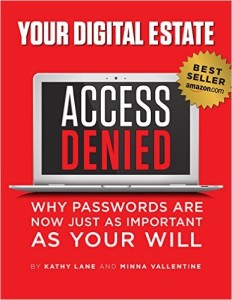 Everyone today has several online account and is part of the digital world. Are you one of the millions of people playing Pokemon? Are you using real US dollars to make in-game purchases? Do you place a real value on your game progress?
Everyone today has several online account and is part of the digital world. Are you one of the millions of people playing Pokemon? Are you using real US dollars to make in-game purchases? Do you place a real value on your game progress?
Well what happens to your account when you die? According to a recent Forbes article, if you have online accounts for things like Pokemon, Facebook, LinkedIn, Twitter and Gmail, the answer is not a simple one.
First you need to look at federal and state law. At the federal level, there isn’t any direct authority related to digital assets. At the state level, some states have enacted legislation to allow an estate’s executor to gain access to some digital assets upon the death of their owner. However, this legislation does not extend to all 50 states and is not totally consistent in its direction.
Once digital assets are treated more like physical assets, then your will, trust or state succession laws will determine how these accounts are transferred. However, you may not want all of these assets transferred; you may want them deleted on your death. For example, you may not want your spouse to read all of your emails or private Facebook messages. You will need to indicate your wishes in your estate plan.
If you have online accounts at places like Home Depot or Lowes, you may want to direct your executor to pay any outstanding balance and then delete that account so that it can’t be hacked.
Have you read the service agreements that you clicked “okay” for when you signed onto Pokemon Go or Facebook or Gmail. They put restrictions on your ability to share passwords or to transfer the account. “In fact, Pokemon Go’s contract gives you a ‘limited nonexclusive, nontransferable, non-sublicensable license to the application.” What this means is that when you die, your Pokemon Go account is dead as well.
As you can see, online accounts are governed by documents as well as state laws. You need to carefully read the agreements that you “sign” so you can understand what you really have….or don’t. When you prepare your estate plan, make sure that you include a list of the names of all of your online accounts, their passwords and usernames so your family can access your accounts when you die. Develop a plan for the disposition of those accounts when you die. It is an important part of any estate plan.
For more information about your digital estate, check out our book, Access Denied: Why Your Passwords Are Now As Important As Your Will.



